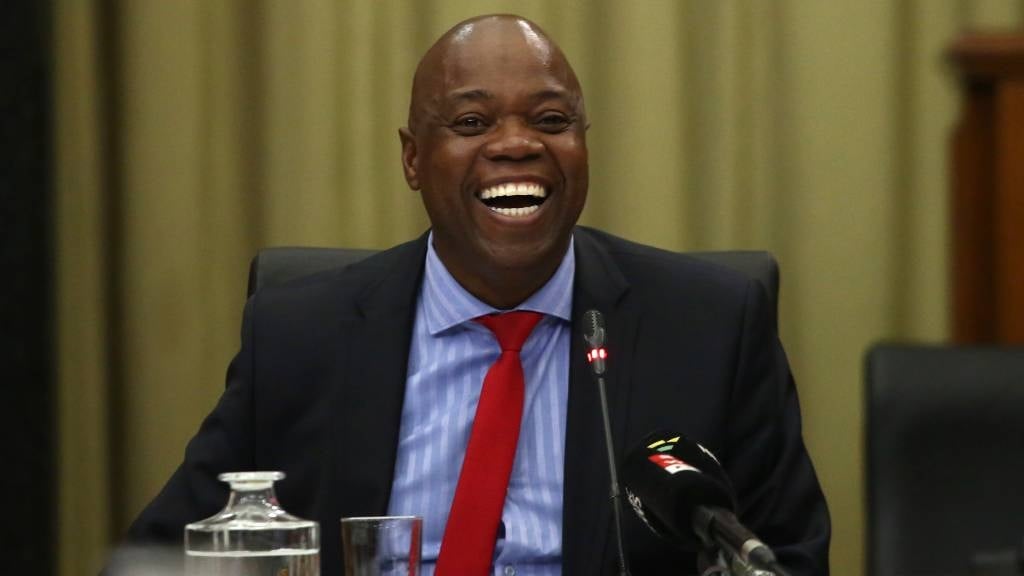

Former Mpumalanga prosecutions boss Matric Luphondo faces charges of corruption and defeating the ends of justice.
Phill Magakoe/Gallo Images
- Matric Luphondo and Kebone Masange are on trial for allegedly bribing a prosecutor to make a criminal case go away.
- Luphondo’s defence raised the issue of whether there was authorisation to prosecute him.
- On Thursday, Gauteng Director of Public Prosecutions advocate Sibongile Mzinyathi gave testimony about his decision to prosecute Luphondo.
Gauteng Director of Public Prosecutions (DPP) advocate Sibongile Mzinyathi took the decision to institute the corruption prosecution against former Mpumalanga DPP Matric Luphondo, which was reduced to writing.
This was the State’s response on Thursday after Luphondo’s defence team argued there was no legal written authorisation for the prosecution of their client.
Luphondo and his co-accused, former head of the Mpumalanga human settlements department Kebone Masange, appeared in the Gauteng High Court in Pretoria where they are currently on trial on charges of corruption, defeating the ends of justice, and conspiracy to commit corruption.
It is alleged Luphondo and Hawks official Ayanda Plaatjie bribed a senior prosecutor, advocate Andrew Mphaga, to withdraw a fraud and contravening the Immigration Act case against Masange.
Plaatjie died in 2021.
Masange is accused of being in South Africa illegally and using fraudulent documents in his application for the head of department position at the department.
READ | Prosecution authorisation questioned in corruption trial of former Mpumalanga NPA boss
However, advocate Danie Dörfling SC, for Luphondo, instead raised the issue of whether there was authorisation to prosecute his client.
The State put Mzinyathi on the witness stand and produced a letter purporting to be the written authorisation to institute prosecution.
He told the court he had taken a decision to authorise Luphondo’s prosecution, and this was reduced to writing.
He said:
The purpose of the document is to convey my decision to the DPP and explain the charges on which the decision to prosecute is made.
Mzinyathi said the document was not signed by him but rather by the chief clerk in his office, as this was normal practice.
He added the letter confirmed his decision and he was privy to the facts of the case before he made the authorisation.
Under cross-examination by Dörfling, the DPP conceded he had not read the evidence in the docket, but again told the court he had been appraised of the facts and was given updates by prosecutors on the matter.
Mzinyathi also relayed some of the allegations against the accused, including Luphondo had received money and a bottle of whiskey.
READ | The paperwork for a sting to catch Mpumalanga’s top prosecutor was a ‘farce’, his defence argues
Advocate Laurance Hodes SC, for Masange, put it to Mzinyathi the letter was not a written authorisation but rather a document to transfer the case from a lower court to the High Court.
He stated the word authorise did not appear on the letter.
Hodes said there was a distinction between authorising the prosecution and having knowledge of the prosecution.
He also pressed Mzinyathi on how he could have made a rational decision to institute the prosecution if he never had sight of the docket.
Mzinyathi responded he was getting regular feedback and had meetings and discussions with the prosecutors involved.